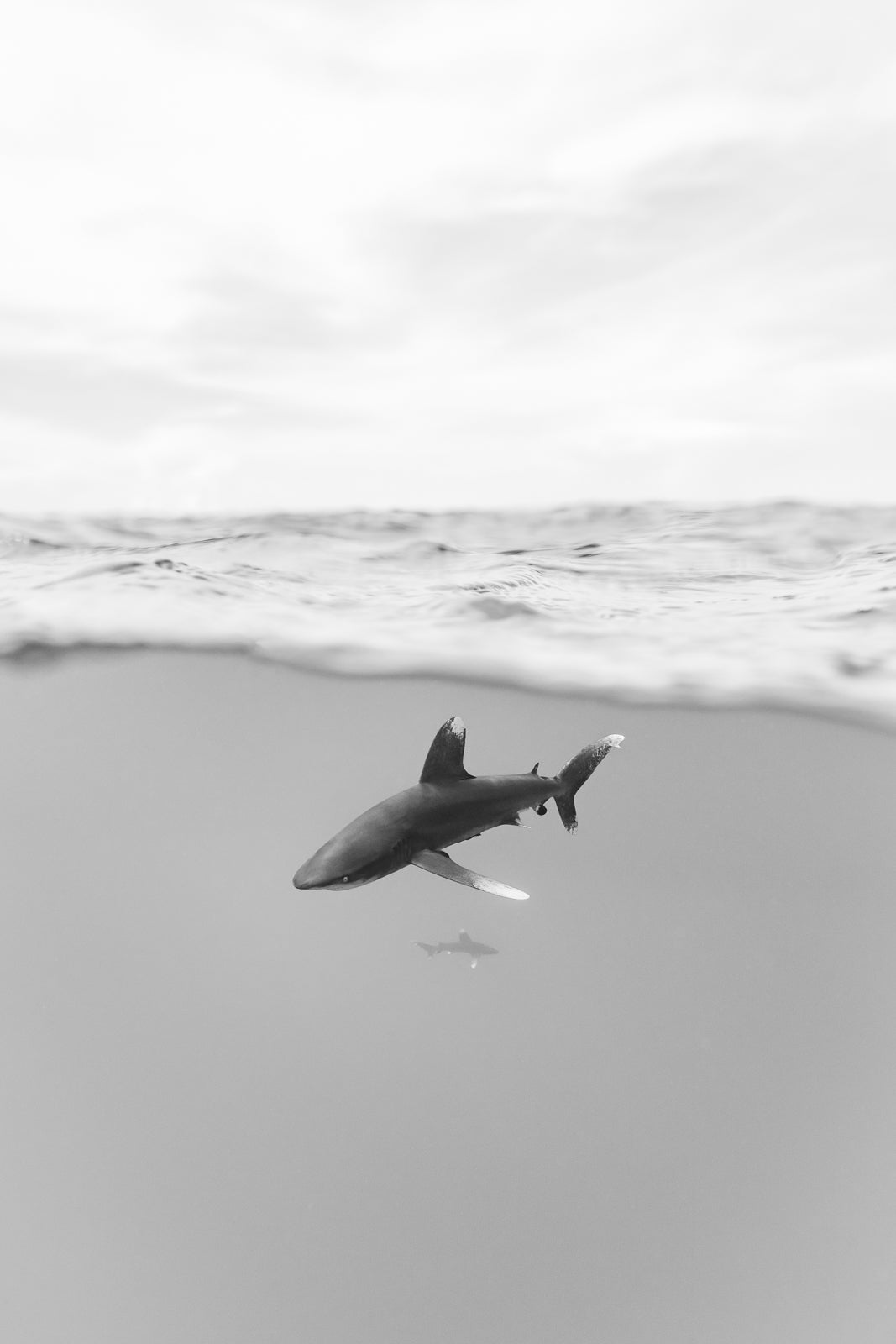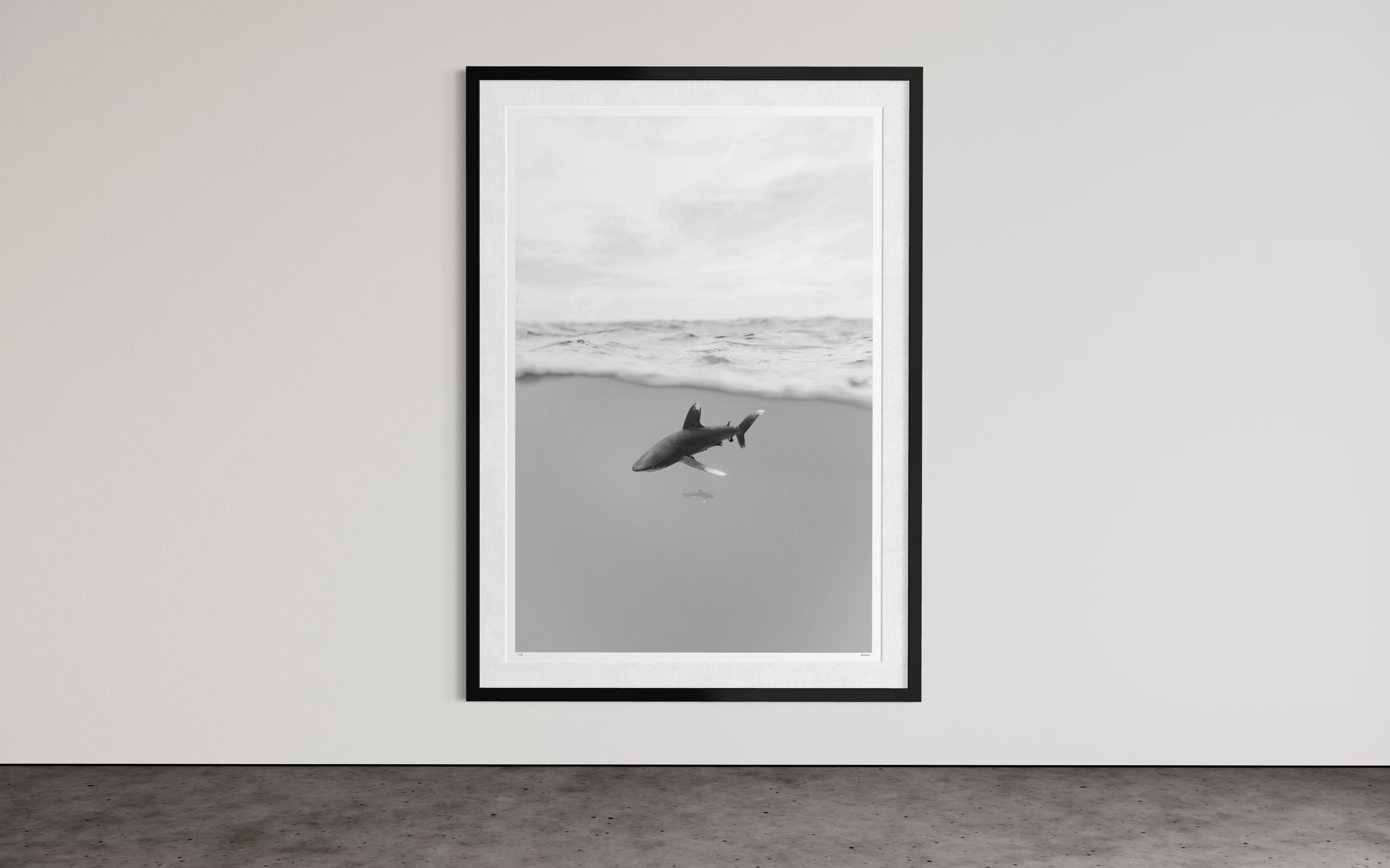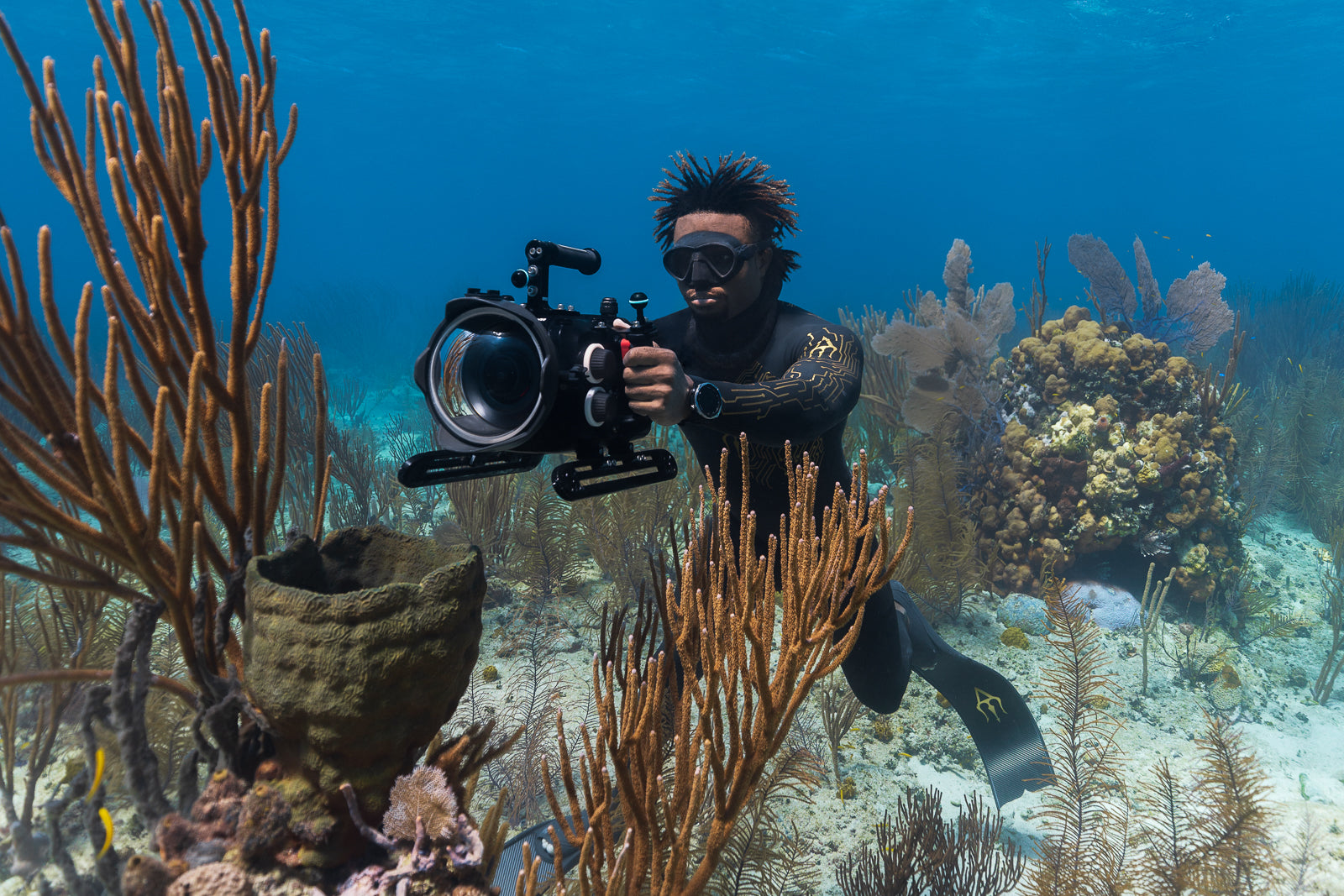





About The Shot
Moorea, French Polynesia/ 2024
Often known as one of the most feared sharks among sailors, with stories of shipwreck survivors being circled for days by these relentless predators, Oceanic Whitetips are bold and opportunistic which has earned them legendary reputation in maritime lore. Unlike some shark species that rely on coordinated hunting strategies, Oceanic Whitetips are largely solitary predators. However, when an opportunity presents itself—such as a school of fish or a struggling prey item—they may gather in numbers, drawn by the promise of an easy meal. Their highly tuned senses allow them to detect the faintest traces of blood in the water from miles away, guiding them to their next hunt. While they may not actively work together, their patience and persistence mean they are often the first to arrive when the ocean serves up a feast. Alone or in numbers, they are opportunists, always watching, always waiting. I shot this photo during a trip to French Polynesia with a few friends—some of them shark divers and some scientists. We only had a three-hour window on the water before catching our boat back to Tahiti from Moorea, so we went straight out to a FAD (Fish Aggregation Device), which fishermen use offshore to attract pelagic species. These floating structures become a hub of life in the open blue, drawing in fish and, sometimes, sharks. We were over thousands of feet of deep water and had no idea if we'd even see a single shark. But within five minutes of arriving, we spotted our first Oceanic Whitetip. Then another… and eventually five of them. No bait, no chum—just us quietly floating, engines off, and these curious sharks circling us for over an hour. Oceanic Whitetips are opportunistic hunters, always investigating anything unfamiliar in their environment. In the vast blue desert of the open ocean, every encounter could mean survival—so they check everything out. Luckily for us, that curiosity didn’t turn into lunch. It was one of the most unforgettable and humbling encounters I’ve had out in the open sea.

